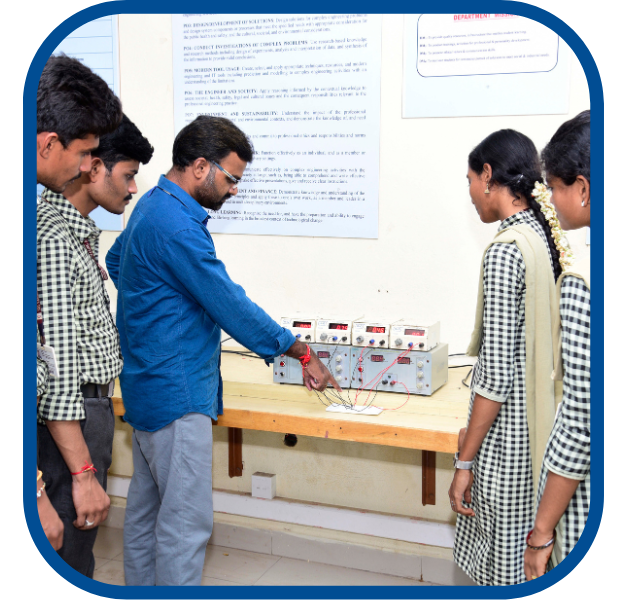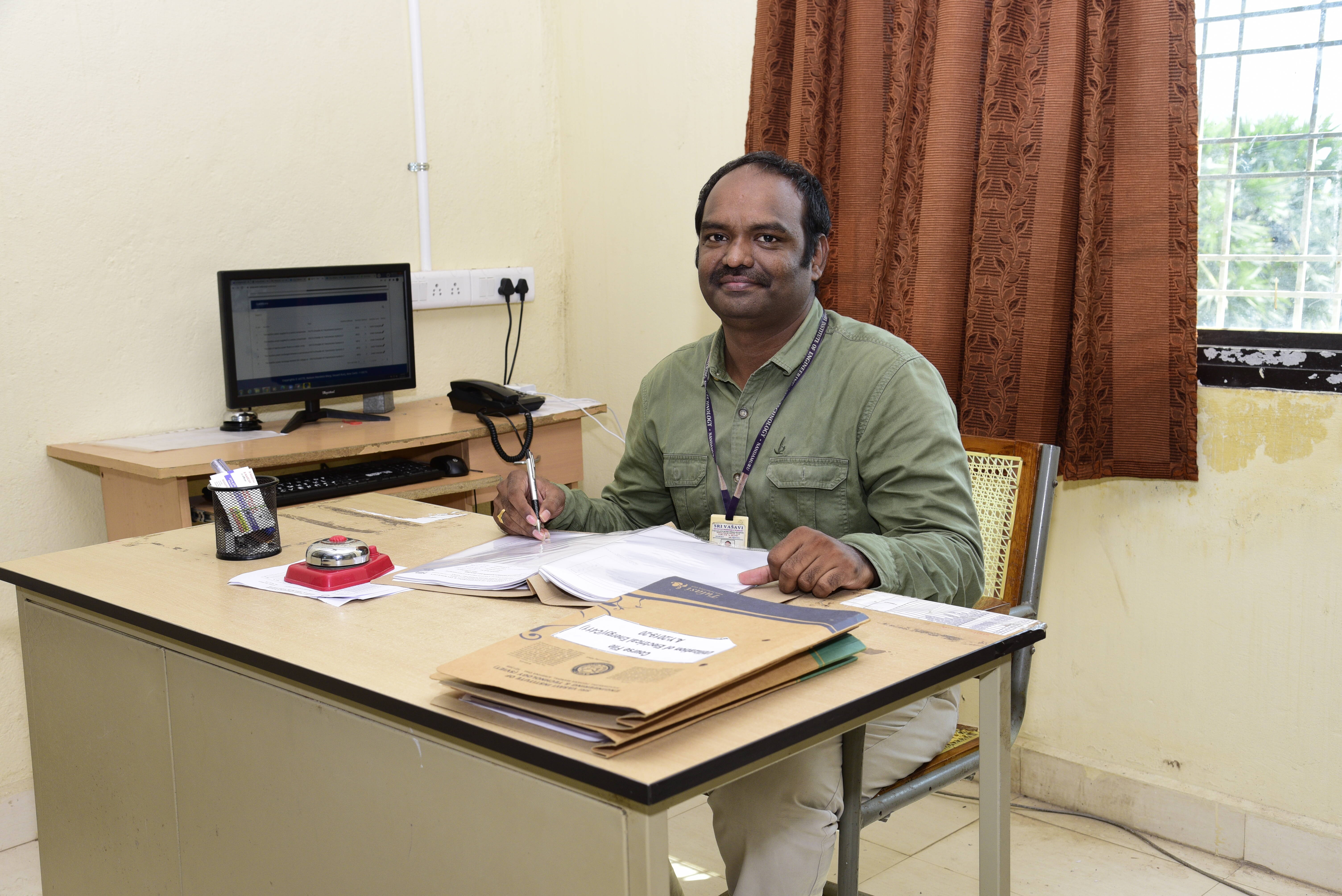Electrical & Electronics Engineering

About Department of Electrical and Electronics Engineering
The Department of Electrical and Electronics Engineering at our institute is at the forefront of powering innovation and technology. With a strong emphasis on electrical systems, electronics, and renewable energy, we equip students with the skills and knowledge to shape the future of the industry.
Intake
120
Faculty : Student
1:15
Laboratories
14
Courses Offered
| Course Offered | Specialization | Intake |
|---|---|---|
| B.Tech | EEE | 60 |
HOD Of Electrical & Electronics Engineering

Mr. Sri Kanth Pola, M.TECH
Professional Memberships:











Electrical engineers play a vital role in advancing technology and innovation across various industries. They apply the principles of physics, mathematics, electronics, and electromagnetism to design, develop, and maintain electrical systems and devices.
From small handheld devices like mobile phones to complex electrical systems in aircraft, electrical engineers contribute to the design and optimization of these systems. They work on power generation, transmission, and distribution, ensuring efficient and reliable electrical supply. They also work on renewable energy sources, such as solar and wind power, to promote sustainable energy solutions.
In addition to designing and building electrical systems, electrical engineers are involved in testing and evaluating prototypes to improve system performance. They conduct simulations, analyze data, and troubleshoot any issues that may arise. Their expertise is crucial in ensuring the safety, efficiency, and functionality of electrical devices and systems.
The future prospects of the EEE graduate are very wide and bright. The demand for environmentally friendly power generation, more sophisticate electrical and electronic devices, and cheaper and smarter products requires the smart work of electrical engineers.
Sample of Career opportunities are Industrial research and development labs like CPRI, DRDO, DRDL etc.,Power Distributing sector like APEPDCL, Software sector like TCS, Engineering Services Exams, Power Generation Industry like NTPC, PGCL, Rail industry, Telecoms, Utilities industry, Pharmaceuticals industry, Oil and Gas industry like ONGC, Aerospace industry like HAL, Automotive industry, Chemical industry, Electronics industry etc.
The current industrial practices involve a lot of automation in every sector. The industry is looking at graduates who are well equipped with the industrial practices and can perform a good job once they are absorbed into the industry. Due to the gap between theory and practice the graduates joining the industry require up to about two years gestation period for them to show their input in the company, in many situations they end up leaving the company without giving any input in the organization or company. A considerable number of employers in the engineering sector experience challenges while employing engineers due to lack of personnel possessing relevant skills and experience. This gap is mostly evident in areas of practical and technical skills, the demand is also there for the generic and personal skills. This is according to the article “An assessment of Skills Needs in Engineering” by Connor H, Dench S and Bates P.






